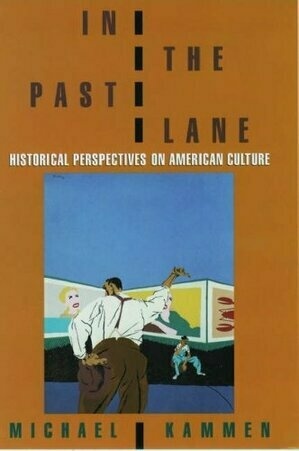
Awarded the Pulitzer Prize for his People of Paradox (1973), and the Francis Parkman Prize for A Machine That Would Go of Itself (1987), Michael Kammen is widely regarded as one of our most important, and most diversely talented, cultural historians. David Brion Davis has said of him that "no other historian of Michael's generation has such a broad and concrete grasp of 'American culture' in all its manifestations from constitutional law to formal painting and popular culture." Now, In The Past Lane brings together writings from a span of more than a decade, covering the broad spectrum of Kammen's recent interests, including the role of the historian, the relationship between culture and the State, uses of tradition in American commercial culture, American historical art, memory distortion in American history, and the contested uses of history in American education, and much more. Here are major contributions to Kammen's work and to American cultural history. In the previously unpublished "Personal Identity and the Historian's Vocation," Kammen considers the complex interplay between historians' personal lives--their religion, ideology, race, gender, sexual orientation--and the history they write. Drawing on prominent historians' own self-reflections, in fascinating letters and memoirs, Kammen takes us inside the process of doing history and traces the movement away from delusions of objectivity to a more engaged and personal approach to the past. We find a lively exchange between David M. Potter and Richard Hofstadter, a personal account of a highly dramatic public debate between Arnold J. Toynbee and Allan Nevins, as well as delightful quotes from many important historians about their work, their beliefs, and their colleagues. We have, for example, Lewis Mumford at Christmas time informing a friend that he was using "the season of peace and cheer and goodwill to begin a murderous attack upon Mr. Bernard DeVoto, and Allan Nevins wryly recommending his multi-volume Civil War history, The Ordeal of the Union, as an ideal wedding present. In "Culture and the State in America," Kammen gives us an illuminating history of government funding for the arts which provides a surprising perspective on the current crises involving the NEA and NEH. He marshals his deep historical knowledge to argue that an elimination of public support will lead to an even greater loss of private support for the arts and humanities, and that the results will impoverish us all. Kammen addresses a range of other concerns in these essays, including the distinction between heritage and history, how multicultural art exhibits are developed, memory distortion in American history. Whether he's warning against historical amnesia, analyzing the iconography of judgment in American courthouses, considering American diversity, or reconsidering the issue of American exceptionalism, Kammen's remarkable essays show us the many ways the past informs, eludes, and yet gives birth to the present.